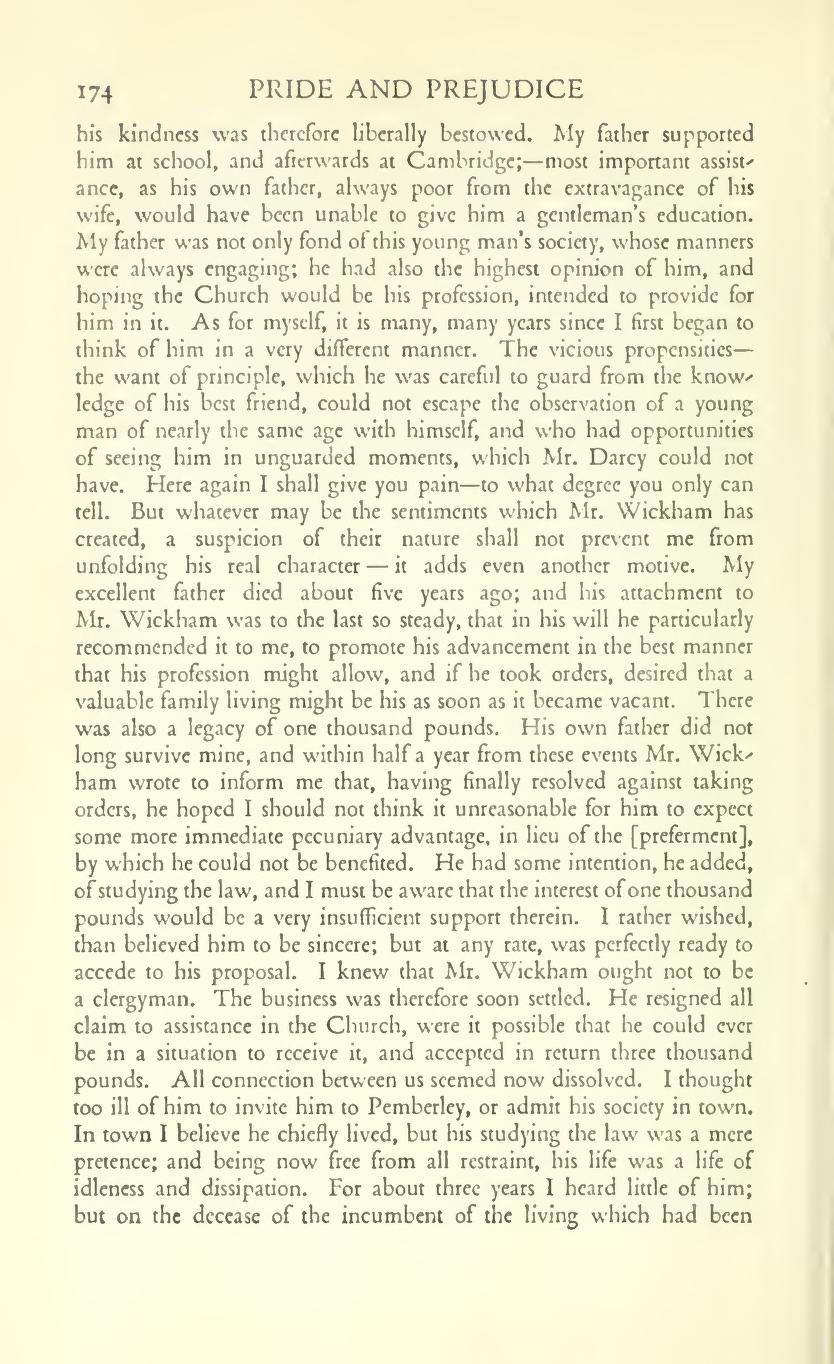 ............prev.....................next
............prev.....................next{{prxprp174.jpg}} || 174 PRIDE AND PREJUDICE ||
his kindness was therefore liberally bestowed. My father supported
him at school, and afterwards at Cambridge; -- most important assist'
ance, as his own father, always poor from the extravagance of his
wife, would have been unable to give him a gentleman's education.
My father was not only fond of this young man's society, whose manners
were always engaging; he had also the highest opinion of him, and
hoping the Church would be his profession, intended to provide for
him in it. As for myself, it is many, many years since I first began to
think of him in a very different manner. The vicious propensities --
the want of principle, which he was careful to guard from the know
ledge of his best friend, could not escape the observation of a young
man of nearly the same age with himself, and who had opportunities
of seeing him in unguarded moments, which Mr. Darcy could not
have. Here again I shall give you pain -- to what degree you only can
tell. But whatever may be the sentiments which Mr. Wickham has
created, a suspicion of their nature shall not prevent me from
unfolding his real character -- it adds even another motive. My
excellent father died about five years ago; and his attachment to
Mr. Wickham was to the last so steady, that in his will he particularly
recommended it to me, to promote his advancement in the best manner
that his profession might allow, and if he took orders, desired that a
valuable family living might be his as soon as it became vacant. There
was also a legacy of one thousand pounds. His own father did not
long survive mine, and within half a year from these events Mr. Wick'
ham wrote to inform me that, having finally resolved against taking
orders, he hoped I should not think it unreasonable for him to expect
some more immediate pecuniary advantage, in lieu of the [preferment],
by which he could not be benefited. He had some intention, he added,
of studying the law, and I must be aware that the interest of one thousand
pounds would be a very insufficient support therein. I rather wished,
than believed him to be sincere; but at any rate, was perfectly ready to
accede to his proposal. I knew that Mr. Wickham ought not to be
a clergyman. The business was therefore soon settled. He resigned all
claim to assistance in the Church, were it possible that he could ever
be in a situation to receive it, and accepted in return three thousand
pounds. All connection between us seemed now dissolved. I thought
too ill of him to invite him to Pemberley, or admit his society in town.
In town I believe he chiefly lived, but his studying the law was a mere
pretence; and being now free from all restraint, his life was a life of
idleness and dissipation. For about three years I heard little of him;
but on the decease of the incumbent of the living which had been
[[174]]